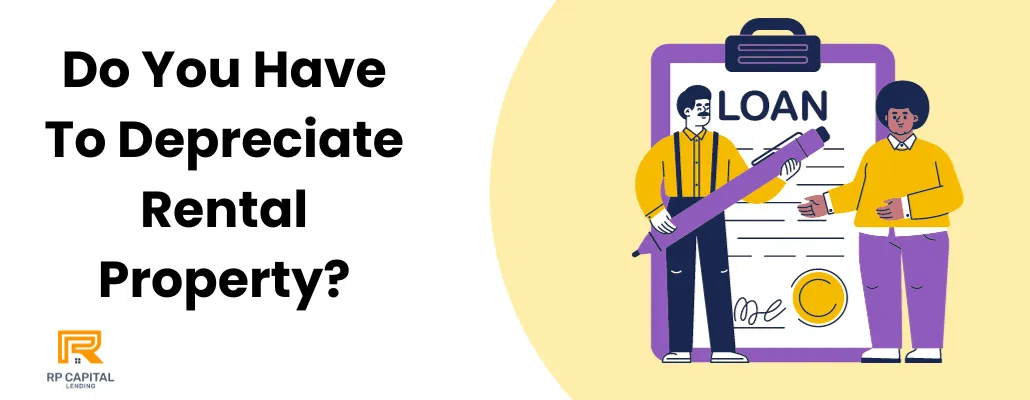Blog

Maximize Your Rental Property Returns: The Importance of Depreciation
Investing in rental properties can be a lucrative venture, providing a steady stream of income and long-term financial stability. However, one aspect of rental property ownership that often confuses investors is depreciation. Do you have to depreciate rental property? In this article, we will explore the concept of depreciation, its importance in the world of real estate, and why you should consider it as an essential part of your investment strategy.
Understanding Depreciation
What is Depreciation?
Depreciation is the process of allocating the cost of a tangible asset over its useful life. In the context of rental properties, this means spreading out the cost of the property over several years. Depreciation helps property owners account for wear and tear, aging, and the eventual need for replacement or upgrades.
Why Does It Matter?
Depreciation is not just an accounting term; it has real financial implications. Here's why it matters:
Tax Benefits
Depreciation can significantly reduce your taxable income. When you depreciate your rental property, you can deduct a portion of its cost from your annual income, reducing your tax liability. This tax benefit can translate into substantial savings over the years.
Improved Cash Flow
By reducing your tax burden, depreciation can free up more cash for you to reinvest in your property or cover ongoing expenses. This can lead to improved cash flow and a healthier bottom line for your rental property business.
Depreciation Methods
Straight-Line Depreciation
One common method used to depreciate rental properties is the straight-line depreciation method. Under this approach, you allocate an equal amount of depreciation expense each year over the property's useful life. This method provides consistency and predictability in your financial planning.
MACRS Depreciation
The Modified Accelerated Cost Recovery System (MACRS) is another method allowed by the IRS. It allows for more significant deductions in the early years of ownership, which can be especially beneficial for property investors looking to maximize tax benefits upfront.
Depreciation and Property Value
Impact on Property Value
While depreciation helps you save on taxes and improve cash flow, it's essential to understand its impact on your property's overall value. Depreciation reflects the wear and tear on your property, which can affect its market value.
Maintenance and Upkeep
To mitigate the effects of depreciation on your property's value, it's crucial to invest in regular maintenance and necessary upgrades. Keeping your property in excellent condition can help maintain or even increase its value over time.
Conclusion
In conclusion, depreciation is a vital consideration for rental property owners. While it may seem complex, understanding how to depreciate rental property can lead to significant tax benefits and improved cash flow. It's essential to choose the depreciation method that aligns with your financial goals and to stay proactive in maintaining your property's value.
FAQs
1. Is depreciation mandatory for rental property?
Depreciation is not mandatory, but it is highly recommended as it offers significant tax benefits for property owners.
2. What is the difference between straight-line depreciation and MACRS?
Straight-line depreciation allocates an equal amount of depreciation expense each year, while MACRS allows for more substantial deductions in the early years of ownership.
3. Can depreciation negatively impact my property's value?
Depreciation can affect your property's value over time, but regular maintenance and upgrades can help mitigate this impact.
4. How do I calculate depreciation for my rental property?
You can calculate depreciation using IRS guidelines, taking into account the property's cost, useful life, and chosen depreciation method.
5. Are there any limits to depreciation deductions for rental properties?
The IRS sets limits on depreciation deductions for rental properties, so it's essential to stay informed about the latest tax regulations.
Investing in rental property can be a smart financial move, and understanding the role of depreciation is a crucial aspect of managing your investment effectively. By leveraging depreciation methods and maintaining your property's value, you can make the most of your rental property investment while enjoying tax benefits along the way.
RP Capital Lending is a d.b.a of RP Capital Partners Inc (NMLS # 2469193) | Privacy Policy
Copyright © 2022. All Rights Reserved.
Disclaimer: Loans only apply to non-owner occupied properties. Rates, terms and conditions offered only to qualified borrowers, may vary upon loan product, deal structure, other applicable considerations, and are subject to change at any time without notice.

